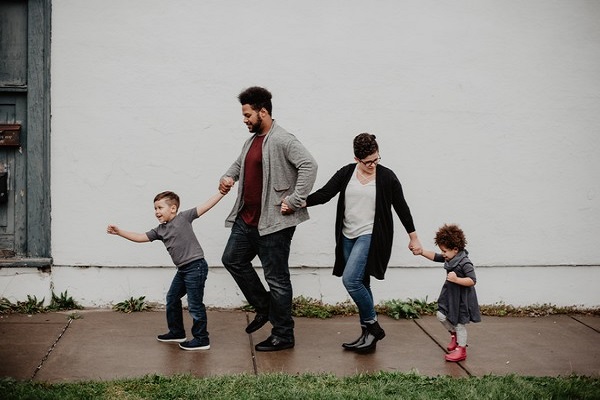
Washington: According to recent University of Georgia research, being a protective parent may prepare your children for a better adult life. The study found that growing up in places where gunshots are common and heat and electricity are unreliable can lead to pain and other physical health limitations in adulthood. But being involved in your child's life, such as knowing their friends or where they're hanging out after school, can help counteract those effects, according to the new research. "Early life experiences really affect physical and mental well-being throughout our lifespan," said Kelsey Corallo, lead author of the study and a recent doctoral graduate from UGA's Department of Psychology.
"Even if we don't have a lot of tangible memories from very early on in life, we know how we felt, we know how loved we were and how supported we were, and these things get embedded in us." The study found that setting limits and letting your kids know you are keeping an eye on them reduces the risks of physical and mental health issues in adulthood. "This isn't just the direct 'know where your kids are' type of parenting, and it's not helicopter parenting that makes a difference," said Katherine Ehrlich, co-author of the study and an associate professor in the Franklin College of Arts and Sciences. "Communicating love and the desire to be part of your child's life, I think, is probably part of the magic ingredient of vigilant parenting that benefits the child."
Stress in childhood may affect functioning of immune, and regulatory systems
The study analyzed responses from more than 4,825 respondents to the U.S. Bureau of Labor Statistics' National Longitudinal Survey of Youth 97. (The national survey followed thousands of individuals from adolescence through their mid-30s.) The researchers found a connection between growing up in a less safe environment and physical health limitations in adulthood. It's a finding the researchers find concerning. "There is a lot of research to show that stressful experiences--for example, feeling unsafe, not getting the basic resources that you need in life or being exposed to neglect or abuse--those things literally change how your body functions," said Corallo, who is now a research associate at the Georgia Health Policy Center at Georgia State University.
The stress from those types of experiences can make it difficult for the body to regulate itself, the researchers said. If that sustained level of stress is experienced during childhood or infancy, it can cause lifelong issues with immune function or hormone regulation. "Young people and children tend to be healthy, so the fact that we're seeing a statistical association between physical limitations and childhood environmental risk is pretty incredible," Corallo said. "It shows that these things really do matter, and they have an overt effect on health even in early adulthood when chronic illnesses often haven't even set in yet."
Parents who show they care what their kids are up to can positively impact their health
The study participants who grew up in less safe environments but had parents who were very involved with their lives didn't experience the same health ailments as their peers without vigilant parents. Vigilant parenting was also associated with fewer mental health problems in adulthood. It's likely the children whose parents gave them curfews and monitored their friend groups were better shielded from harmful behaviours that could have lifelong effects, like smoking or binge drinking, the researchers said.
"In more dangerous settings, it may be more difficult for parents to be that involved, for example if they're working multiple jobs," Corallo said. "But even if they're not physically home, keeping track of and making sure their children know that their parents are aware of and care about what they're up to make a big difference." Another key is making sure children know their parents are monitoring them and setting limits because they care about them, not because they want to control every aspect of their lives.
"It's all about how kids are experiencing that vigilant parenting and how they're interpreting it," said Ehrlich. "They don't feel like it's helicopter parenting. They just feel like their mom or dad really cares about them." (ANI)

.jpg?w=600)





